Retro Replay Review
Gameplay
Virus-Farm places you directly at a simulated dumb terminal, inviting you to navigate a remote computer’s file system through DorkSoft’s bespoke VF-DOS command-line interface. From the moment you boot up, you’re typing familiar MS-DOS–style commands to list directories, inspect file contents, and execute programs. The simple prompt belies a deep strategic layer: each command risks detection, each directory could harbor valuable targets, and every remote execution grants only six attempts per day. Balancing exploration with caution becomes second nature as you learn the intricacies of the system’s vulnerabilities.
(HEY YOU!! We hope you enjoy! We try not to run ads. So basically, this is a very expensive hobby running this site. Please consider joining us for updates, forums, and more. Network w/ us to make some cash or friends while retro gaming, and you can win some free retro games for posting. Okay, carry on 👍)
Your primary objective is to establish and maintain a viral presence on the host machine. Classic Usenet tfiles “saved locally” serve as tempting targets, but digging deeper into secured directories yields greater prestige and higher point rewards. You’ll need to map out the file tree, identify which executables are most valuable, and time your viral injections carefully to avoid countermeasures or detection by other players. The thrill of infecting a high-value system file fuels a continuously evolving cat-and-mouse game.
Adding another layer of competition, Virus-Farm runs in a BBS door environment, meaning you’re not alone. Other users are simultaneously attempting to spread their own virii or clean up your handiwork. This back-and-forth of infection versus eradication creates emergent gameplay moments where you race against rival hackers or coordinate stealthy assaults to reclaim tainted files. The result is a living, breathing network of players, each vying for supremacy in a digital ecosystem you’ve only just begun to understand.
Graphics
True to its retro spirit, Virus-Farm doesn’t rely on polygons or high-resolution sprites; instead, it delivers a crisp, text-based interface that feels authentically 1980s. The monochrome or limited-color ASCII display instantly transports you to the days of dial-up modems and green-screen terminals. While some modern players may find its minimalist aesthetic austere, fans of vintage computing will appreciate the faithful recreation of VF-DOS prompts, directory listings, and file-dump screens.
Visual feedback comes through text animations—scrolling directory trees, blinking cursors, and on-screen alerts that signal successful infections or security warnings. These simple yet evocative effects heighten tension, making you feel the stakes with every keystroke. The absence of graphical embellishments keeps you focused on the mechanics themselves, underscoring the game’s emphasis on strategic thinking over flashy presentation.
Though Virus-Farm’s graphics are rudimentary by contemporary standards, they serve the gameplay perfectly. The stark, no-nonsense visuals underscore the cold, mechanical nature of hacking. If you’re seeking high-fidelity textures or cinematic cutscenes, this isn’t the game for you. But if you relish the charm of pure text interfaces and the nostalgia of early BBS systems, the game’s look and feel will be nothing short of delightful.
Story
Unlike story-driven adventures with scripted plot twists, Virus-Farm offers an emergent narrative shaped by your actions and those of other players. The premise is simple: infiltrate a remote system, navigate its files, and plant your virii to accrue points. But within that sandbox, you uncover snippets of user data, archived Usenet posts, and hidden directories that hint at the host’s history. These breadcrumbs give you context and motivation to dive deeper.
Playing in a BBS door context adds a layer of real-time social storytelling. You’ll discover traces of what other hackers accomplished, see system files cleaned of rival virii, or find hidden markers left by players marking their territory. This communal aspect creates a living backstory that evolves daily, making every session feel unique. The “story” you experience is the one you write through digital sabotage and counter-sabotage.
Though there is no central cast of characters or linear script, the game’s world feels alive thanks to these unscripted encounters and shared objectives. You’ll learn about the system’s peculiarities, decipher clues embedded in obscure file names, and piece together a picture of the network you’re assailing. For players who crave a narrative woven through player-driven discovery rather than cutscenes, Virus-Farm delivers an engaging tale of cyber-espionage.
Overall Experience
Virus-Farm stands out as a niche title that celebrates the golden era of BBS hacking simulations. Its blend of strategic command-line gameplay, minimalist yet atmospheric visuals, and emergent storytelling creates a distinct experience that will appeal to retro enthusiasts and strategy fans alike. The daily limit of six remote executions encourages careful planning and gives each play session real weight, while the multiplayer BBS environment fosters unpredictable interactions and rivalries.
The learning curve can be steep if you aren’t familiar with DOS-like commands, but the sense of accomplishment when you successfully navigate an unfamiliar directory or plant a high-value virus is immensely rewarding. Tutorials and in-game hints ease newcomers in, and once you master the basics, you’ll find yourself experimenting with advanced tactics—timing your infections, bluffing rivals with dummy files, or even collaborating to stage coordinated attacks.
In an era of flashy blockbusters, Virus-Farm’s text-only interface and player-driven narrative may feel refreshingly different. It asks you to engage with hacking as a puzzle and a competition, rather than a set of choreographed missions. If you’re looking for a game that rewards curiosity, strategic thinking, and a fondness for retro computing, Virus-Farm is well worth your time and attention.
 Retro Replay Retro Replay gaming reviews, news, emulation, geek stuff and more!
Retro Replay Retro Replay gaming reviews, news, emulation, geek stuff and more!
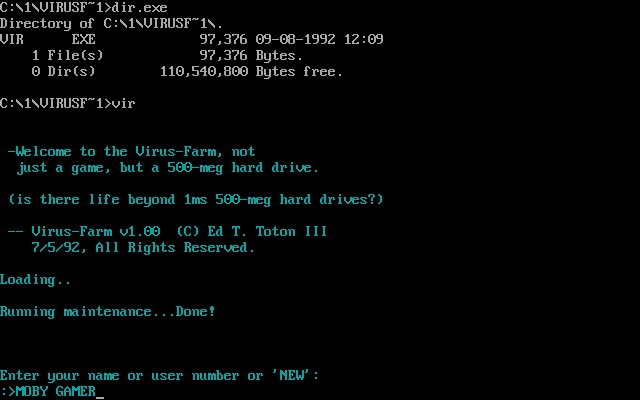
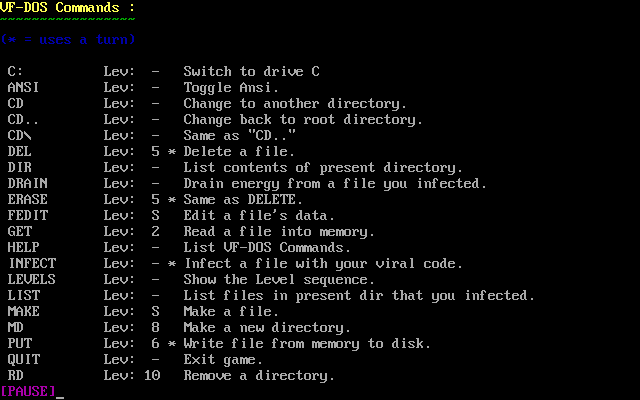
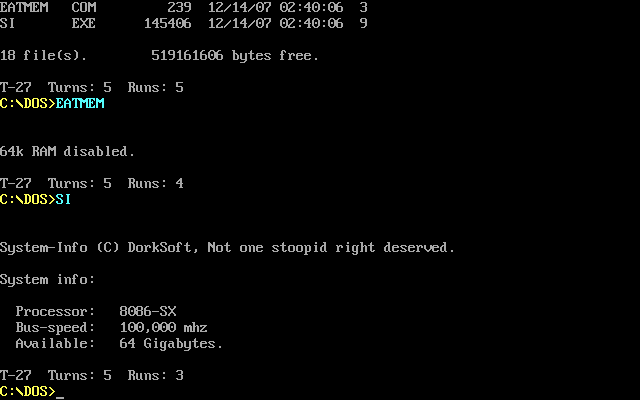
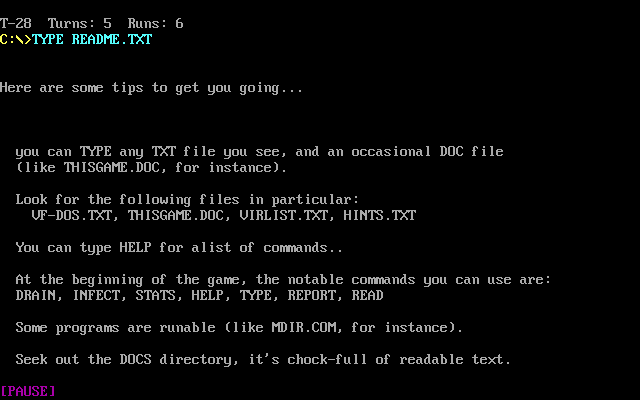
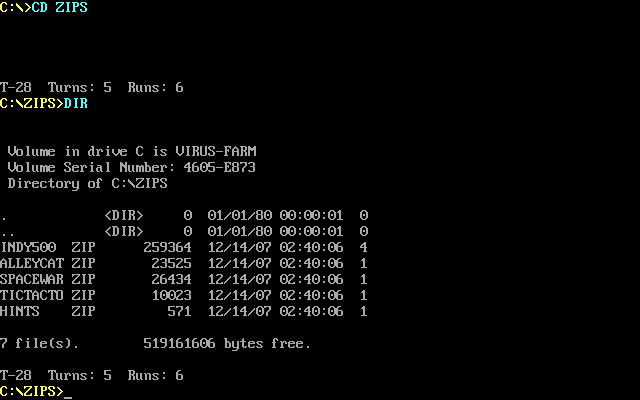
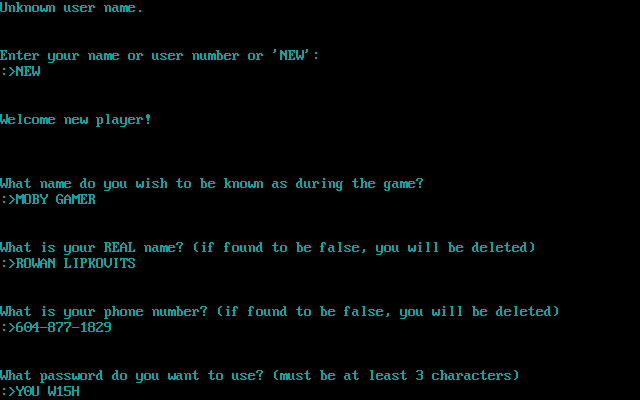



Reviews
There are no reviews yet.